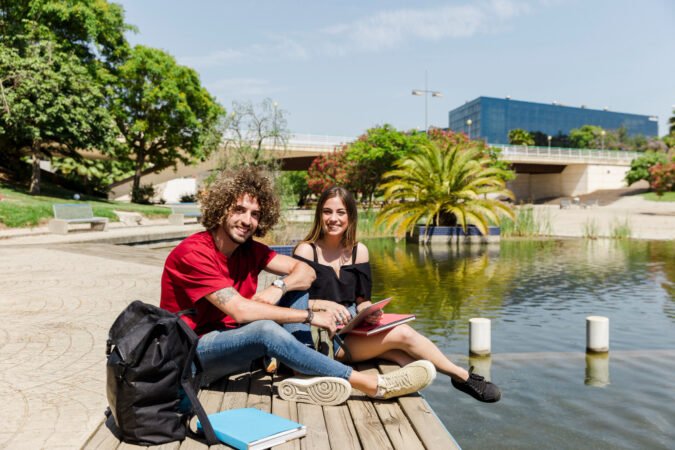Guarding Your Get away : Unmasking the 10 Most Common Travel Scams and How to Outsmart Them
As you plan your dream vacation, visions of breathtaking landscapes, exotic cuisines, and unforgettable experiences dance in your mind. However, amid the excitement, it’s crucial to remain vigilant. Travel scams are an unfortunate reality that can turn your blissful escape into a nightmare. From pickpockets in Paris to taxi tricks in Tokyo, cunning fraudsters are always devising new ways to separate tourists from their hard-earned money.
In this comprehensive guide, we’ll explore the ten most prevalent travel scams, arming you with the knowledge to recognize and avoid these traps. By staying informed and alert, you can ensure your journey remains filled with joy and adventure, rather than stress and financial loss.
The Friendly “Helpful” Stranger
Picture this: You’re struggling with a map in a bustling city square when a charismatic local approach, helping. While many genuinely want to help, some have ulterior motives. These scammers may guide you to overpriced restaurants, shops, or even pickpocket you while you’re distracted (Fesenmaier et al., 2017).
How to avoid it: Politely decline unsolicited help and stick to official tourist information centers. If you do accept assistance, remain aware of your surroundings and keep your valuables secure.
The Taxi Meter Manipulation
Unscrupulous taxi drivers worldwide have perfected the art of overcharging tourists. Common tactics include “broken” meters, unnecessarily long routes, or even rigged meters that run at an inflated rate (Pearce, 2019).
How to avoid it: Research standard fares beforehand, insist on using the meter, and when possible, use reputable ride-hailing apps or pre-arranged airport transfers.
The “Free” Bracelet or Gift
In popular tourist spots, you might encounter seemingly friendly individuals offering you a “free” bracelet or small gift. Once it’s on your wrist or in your hand, they demand payment, often becoming aggressive if you refuse (Kozak & Kozak, 2015).
How to avoid it: Firmly decline any unsolicited gifts or services. Remember, if it seems too good to be true, it probably is.
The Fake Police Officer
This alarming scam involves individuals posing as police officers who approach tourists, demanding to see their wallets for “counterfeit money checks” or “drug searches.” In reality, they’re looking to steal cash or credit card information (UNWTO, 2018).
How to avoid it: Always ask for official identification and suggest moving to a nearby police station to resolve any issues. Legitimate officers will comply with these requests.
The Accommodation Bait-and-Switch
You arrive at your hotel, excited to check in, only to be told there’s a “problem” with your booking. The staff offers to transfer you to a “sister property,” which turns out to be subpar accommodation at the same price (Guttentag, 2015).
How to avoid it: Book through reputable platforms, read recent reviews, and contact the property directly before arrival to confirm your reservation.
The Fake WiFi Hotspot
In an era where staying connected is crucial, scammers set up fake WiFi hotspots in popular tourist areas. When you connect, they can potentially access your device and steal sensitive information (Cheng et al., 2016).
How to avoid it: Use a Virtual Private Network (VPN) when connecting to public WiFi, or stick to official networks provided by your accommodation or reputable establishments.
The Rental Car Damage Scam
Upon returning your rental car, you’re suddenly accused of causing damage that you’re certain wasn’t there when you picked up the vehicle. The rental company demands immediate payment for repairs (Amaro & Duarte, 2017).
How to avoid it: Thoroughly document the car’s condition with photos or videos before driving off, and consider purchasing additional insurance for peace of mind.
The ATM Skimmer
Criminals attach devices to ATMs that can read and store your card information when you insert it. They may also use hidden cameras to capture your PIN (Europol, 2020).
How to avoid it: Use ATMs inside banks when possible, cover the keypad when entering your PIN, and regularly check your bank statements for suspicious activity.
The Fake Tour Operator
You book an exciting excursion through a seemingly legitimate tour operator, only to discover on the day that the company doesn’t exist, leaving you out of pocket and without your anticipated adventure (UNWTO, 2018).
How to avoid it: Book tours through reputable companies or your accommodation provider. Research the operator online and look for recent, authentic reviews before making any payments.
The Pickpocket Distraction
Skilled pickpockets often work in teams, with one member creating a distraction (like dropping something or asking for directions) while another swiftly relieves you of your valuables (Tarlow, 2014).
How to avoid it: Stay alert in crowded areas, keep valuables in a secure, hidden place (not in back pockets or easily accessible bags), and be wary of sudden distractions or commotion.
While these scams may seem daunting, it’s important to remember that the vast majority of your travel experiences will be positive and enriching. By staying informed and taking simple precautions, you can significantly reduce your risk of falling victim to these schemes.
Here are some general tips to keep in mind throughout your travels:
- Trust your instincts: If a situation feels unsafe or too good to be true, it probably is.
- Do your research: Before your trip, familiarize yourself with common scams in your destination.
- Stay vigilant: Be aware of your surroundings, especially in crowded tourist areas.
- Secure your valuables: Use hotel safes, hidden money belts, and RFID-blocking wallets.
- Use official services: Stick to licensed taxis, authorized tour operators, and reputable accommodations.
- Be cautious with strangers: While meeting new people is part of the joy of travel, maintain a healthy level of skepticism.
- Keep documentation safe: Make copies of important documents and store them separately from the originals.
- Use secure payment methods: Credit cards often offer better fraud protection than cash or debit cards.
- Stay connected safely: Use VPNs and be cautious about sharing personal information online.
- Know local emergency numbers: Research and save local police and embassy contact information before your trip.
Remember, the goal isn’t to make you paranoid or discourage you from embracing new experiences. Instead, it’s to empower you with knowledge so you can travel with confidence. As Mark Twain once said, “Travel is fatal to prejudice, bigotry, and narrow-mindedness.” Don’t let the fear of scams prevent you from exploring the world’s wonders.
By staying alert, trusting your instincts, and implementing these simple precautions, you can focus on creating unforgettable memories rather than dealing with travel mishaps. So pack your bags, update your passport, and set off on your next adventure with the peace of mind that comes from being a savvy, scam-aware traveler.
Bon voyage, and may your journeys be filled with nothing but authentic experiences and joyful discoveries!
Written by : Farokh Shabbir
References
Europol. (2020). Internet Organised Crime Threat Assessment (IOCTA) 2020. European Union Agency for Law Enforcement Cooperation.
Fesenmaier, D. R., Xiang, Z., Pan, B., & Law, R. (2017). A framework of search engine use for travel planning. Journal of Travel Research, 56(6), 744-759.
Guttentag, D. (2015). Airbnb: disruptive innovation and the rise of an informal tourism accommodation sector. Current Issues in Tourism, 18(12), 1192-1217.
Kozak, M., & Kozak, N. (2015). Tourism Development. Cambridge Scholars Publishing.
Pearce, P. L. (2019). Tourist behaviour: The essential companion. Edward Elgar Publishing.
Tarlow, P. E. (2014). Tourism Security: Strategies for Effectively Managing Travel Risk and Safety. Butterworth-Heinemann.
UNWTO. (2018). Global Report on the Power of Youth Travel. World Tourism Organization.









